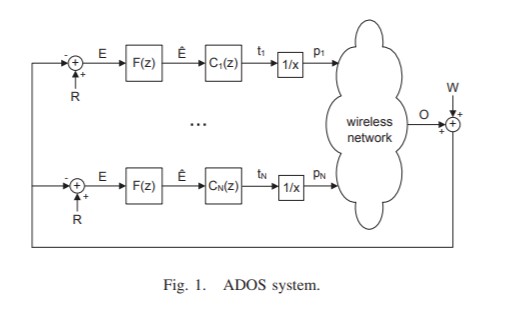IMDEA Networks

Opportunistic Scheduling "DOS" technique to improve performance of wireless networks
27 March 2012

A new research study claims that the design of algorithms over Distributed Opportunistic Scheduling (DOS) systems brings high benefits in the performance of wireless networks. The implementation of opportunistic techniques allows to fully exploit the available resources in many realistic scenarios.
The study “Distributed Opportunistic Scheduling: A Control Theoretic Approach” is being presented at the 31st Annual International Conference on Computer Communications, IEEE INFOCOM 2012 – the premier conference in telecommunication and networking research –held in Orlando, USA, between March 25th and 30th. The publication is authored by Andres Garcia-Saavedra, Pablo Serrano and Albert Banchs, of University Carlos III of Madrid, and by Joerg Widmer affiliated (together with Dr. Banchs, who holds a double appointment) with Institute IMDEA Networks.
DOS techniques have been recently proposed to improve the throughput performance of wireless networks. With DOS, each station contends for channel access with a certain access probability. If more than one station attempts a transmission at the same time, there is a collision and the transmissions cannot be decoded at the receiver. If a contention is successful, the station measures the channel conditions and transmits only in case the channel quality is above a certain threshold. Otherwise, the station does not use the transmission opportunity, allowing all stations to recontend with the hope that other station with better instantaneous channel conditions will get the channel instead, thus improving overall performance.
A key challenge with DOS is to design a distributed algorithm that optimally adjusts the access probability and the threshold of each station. To address this challenge, in this research study the authors have first computed the configuration of these two parameters that jointly optimizes throughput performance in terms of proportional fairness. Next, they have proposed an adaptive algorithm based on control theory, which converges to the desired point of operation. Finally, they have conducted a control theoretic analysis of the algorithm to find a setting for its parameters that provides a good tradeoff between stability and speed of convergence. Simulation results have validated the design of the proposed algorithm and confirmed its advantages over previous proposals.
About Opportunistic Scheduling techniques
When tackling the need for improvement of the throughput performance of wireless networks, opportunistic scheduling techniques have been the source of several studies. Research has established that, due to channel fading, the link condition fluctuates and so it does the available bitrate a station could reliably use. Currently, PHY layer mechanisms tend to use conservative configurations in order to minimize the probability of an error in the transmission due to faded instants. However, these configurations leave resources not fully utilized and fading effects are still not totally mitigated.
Using knowledge of the link conditions (from the PHY layer), opportunistic techniques schedule transmission opportunities (at the MAC layer) to those nodes with better instantaneous conditions that can transmit faster and reliably at that given instant. These techniques claim that a joint PHY/MAC design can boost the throughput and latency performance in wireless networks.
However, collecting information from all the links at this small timescale is a great challenge. To address this, Distributed Opportunistic Scheduling (DOS) techniques allow stations to unilaterally schedule their own transmissions expecting overall performance gains as a rate-of-return. The advantage is that nodes only require local available information, which leads opportunistic techniques to be very efficient in distributed wireless networks.
With the work described here, the authors show that an optimization of a DOS system aimed at improving overall throughput will only cause unfairness issues in a realistic topology, and they therefore propose an optimization that provides a proportional fair allocation of throughput. Moreover, the study designs an adaptive algorithm to drive the system to its optimal configuration in any real-life scenario: dynamic topologies where nodes enter/leave the network, non-saturated nodes, heterogeneous links, etc. This way, the researchers are able to claim that the design of algorithms over DOS systems brings high benefits in performance and, furthermore, the implementation of opportunistic techniques is possible in order to fully exploit the available resources in many realistic scenarios.
Read more:
Distributed Opportunistic Scheduling: A Control Theoretic Approach



Recent Comments